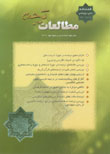Dynamic Assessment of Interpreting Students’ Listening Abilities
Abstract
Enamored with the ambition of providing a more nuanced picture of learners' underlying potential and future-in-the-making, Vygotsky spearheaded an innovative assessment procedure more aptly known as Dynamic Assessment (henceforth DA) which serves simultaneously as an evaluative and instructional practice to diagnose learners' specific areas of difficulties and to promote those which are in the state of ripening (Vygotsky, 1978; Poehner & Lantolf, 2005; Poehner, 2009). DA currently in vogue in developmental psychology is getting prolifically utilized by the interested scholars in adjacent disciplines (Lantolf, 2001; Poehner, 2005; Antón, 2008; Ableeva, 2008) with the goal in mind to revitalize the potential applications of Vygotsky's Socio-cultural Theory (SCT) of mind and his revolutionary concept of the Zone of Proximal Development (ZPD) for the assessment of learners' linguistic abilities. This study, more evocative of Vygotsky's SCT perspective on human's mental functioning, was designed to test the feasibility of dynamic assessment as an assessment and instructional procedure to diagnose and promote the listening abilities of interpreting students in classroom context. Poehner's (2009) recently introduced group-based (G-DA) and concurrent format of DA served as the theoretical basis for the construction of our assessment procedures. Concurrent and interactionist G-DA protocols were collected over a time span of eight weeks of instruction. Microgenetic and qualitative excerpts of G-DA protocols are provided to illustrate the effects of G-DA interactions on the students' listening abilities. The results indicated that the G-DA instructions can better diagnose the students' sources of difficulties at the time of listening to the news broadcasts and help promote those which are in the state of maturation. The G-DA interactions had the function of moving the entire class forward in its ZPD while co-constructing ZPDs with individual students within the social microcosm of the classroom context. Finally, it is argued that the G-DA has the potential to serve as an innovative teaching and assessment procedure to enhance the students' listening abilities in interpreting classes.Published
2011-05-31
How to Cite
Shabani, K. (2011). Dynamic Assessment of Interpreting Students’ Listening Abilities. Iranian Journal of Translation Studies, 9(33). Retrieved from https://journal.translationstudies.ir/ts/article/view/465
Issue
Section
Academic Research Paper
License
Copyright Licensee: Iranian Journal of Translation Studies. This article is an open access article distributed under the terms and conditions of the Creative Commons Attribution–NonCommercial 4.0 International (CC BY-NC 4.0 license).





